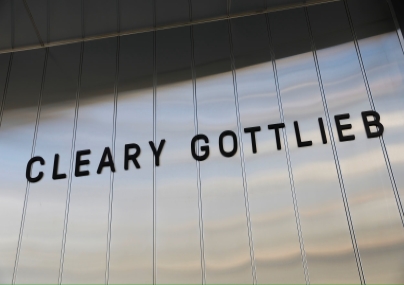In June this year, China’s tax authorities had launched a probe into the so-called “yin-yang contracts” of Chinese superstar Fan Bingbing, following allegations that she engaged in contract chicanery to hide a massive remuneration.
An investigation by Chinese tax authorities found Fan had evaded taxes of 7.3 million yuan ($1.1 million) overpayments for her role in “Air Strike”. Fan and the companies she represented also had taxes that are 248 million yuan ($36 million) overdue, among which 134 million yuan ($19 million) for tax evasion.
Although Fan was ordered to pay 884 million yuan ($128 million), the most famous tax evasion case in the Chinese entertainment industry was of superstar Liu Xiaoqing. In 1996, Liu’s company resorted to deceptively fraudulent tactics to save on taxes to the extent of 14.58 million yuan ($2.12 million). She was imprisoned for more than a year for tax evasion and overdue taxes.
However, following the 2009 amendment of PRC Criminal Law’s Article 201 PRC Criminal Law in 2009, Fan, as a first-time offender, can avoid facing criminal charges if she pays all the money within the time limit specified by the tax authority.
Fan’s case caused quite a stir in the legal industry. As one of China’s highest paid actors, Fan tops New Forbes China Celebrity List for the last five years, but will she survive the huge fines?
People in the legal profession approached the case from another perspective.
According to Bill Ye, tax partner of King & Wood Mallesons, “From tax professional’s aspect, we want to identify how the 884 million yuan was determined: ‘Yin-yang contracts’ is doubtless tax fraud but does the split contract mean the ‘yin-yang contracts’? The huge fines are targeted to ‘yin-yang contracts’ only or applied to the split contract as well? The late-payment penalty is modest in Fan’s case, is that because some split contract is counteracted by the anti-tax-avoidance rules?”
Ye’s three questions invited us to think twice about the current practice. The split contract could either be tax evasion and overdue taxes, or be tax planning, where draws the boundary is the key. Regarding the amount of fines, more rules are welcomed to regulate the administrative discretion. Regarding the amount of the late-payment penalty, it is a question of “anti-tax-avoidance vs. late-payment penalty”.
In this case, Fan and the companies she represents were liable for administrative penalties. One reason for the legal entity’s penalty is its failure to withhold and report obligations. This raises another question: Would the amended Article 201 apply to the legal entity if the legal entity, like a natural person, is also a first time offender?
Ye reminded the enterprises that, tax compliance matters and criminal risks, like fake VAT invoices, smuggling, accounting gimmicks & fraud, etc. should not be treated lightly.
REFORM JUST BEGINNING
China’s tax reform is just beginning but headed in the right direction.
“At the beginning stage, when we deal with issues such as the split contract, tax disputes, or invoice problems, do not jump to conclusions. Be diligent, be attentive to details, be professional,” Ye said.
Fan’s case is a reminder to high-income earners in the entertainment industry to look closely into their own taxpaying practices before December 31, 2018.
Those who make remedial payments to the tax authorities for unpaid taxes will be exempt from administrative punishment and penalties. The grace period will help to alleviate the longstanding problems such as sky-high payments, ‘yin-yang contracts’, or tax evasion in the industry.
The industry-wide crackdown on tax evasion continues from January to the end of February 2019. The authorities will target certain companies and industry workers to “further self-correct” their taxes based on their self-conducted re-examination results. Those who were warned to self-correct their taxes at this stage will be penalized, but the level of punishment will vary depending on the situation.
Heavy penalties will be applied to those who would not comply between March and June next year. Authorities will review the current taxation policies applied on film and television industries and set up a new, effective measures to improve tax collection and management by the end of July 2019.
高收入又逃税的时代该落幕了
“范冰冰案”是中国政府严惩偷逃税行为的一个强烈警示。
今年6月初,范冰冰“阴阳合同”涉税问题浮出水面,江苏等地税务机关随即依法展开调查。
根据新闻通稿介绍的调查核实情况来看,范冰冰在电影《大轰炸》的实际片酬3000万元,偷缴个人所得税618万元,少缴营业税及附加112万元,合计730万元。此外,还查出范冰冰及其担任法定代表人的企业少缴税款2.48亿元,其中偷逃税款1.34亿元。
对于上述违法行为,范冰冰需要补缴税款及缴纳罚款共约8.84亿元。历史上最为轰动的明星逃税事件,非刘晓庆逃税案莫属。北京晓庆文化艺术有限责任公司1996年以来采取不列或少列收入、多列支出、虚假申报等手段偷税漏税达1458.3万元。因数额巨大,刘晓庆没能逃脱牢狱之灾。
而范冰冰属于首次按偷逃税进行行政处罚且此前未因此受刑事处罚,所以只要交了税款和罚金,不会被追究刑事责任,这是2009年刑法修正之后第二零一条的规定。
该案“一石激起千层浪”,公众对刑法修正案的去罪化规定是否合理展开了讨论,也对这位近五年蝉联福布斯中国名人收入榜榜首的女明星能否交得起巨额罚款议论纷纷。
但在专业人士眼里,则又是另一幅图景。金杜律师事务所税务合伙人叶永青指出,“我们更关注这8.8亿是如何确定的,这对征管实践有启发意义。首先,阴阳合同是偷逃税没有异议,但合同拆分究竟在什么情况下被认定为偷逃税?其次,3倍和4倍的罚款是仅针对阴阳合同这一明显的偷漏税行为,还是也对拆分合同的行为进行了适用?再次,此次行政处罚中滞纳金数额不高,是否因为对部分拆分合同的处理是按反避税处理所以不涉及滞纳金?”
叶永青律师提出的三个问题,也给出了进一步审视与探究税收征管实务的空间:合同拆分的认定,涉及偷逃税和合理税收筹划的界限划分;罚款数额,涉及行政处罚自由裁量权的进一步细化与规范;滞纳金的数额,直接取决于交易的定性。在该案的定性处理中,范冰冰个人和其担任法定代表人的机构都被予以行政处罚。担任法定代表人的机构被处罚的原因之一,是相关企业未履行代扣代缴义务。问题来了,如果企业采用与纳税人相同的手段逃避履行扣缴义务的,是否按逃税罪处理?在该情况下是否可以适用刑法第二零一条的去罪化规定?
叶永青律师认为,“企业家们要重视税务合规的问题。如果有两个以上的企业或者企业和个人同时涉嫌偷逃税,无论是否已有两次以上处罚,如果分别下通知,仍存在较大的刑事风险。另外还需要关注其他常见的涉税刑事风险,比如虚开增值税发票、走私、指示财务人员改变会计记录等,这些可都是没有去罪化规定的。”
中国税收法治刚刚起步
中国的税收法治道路刚刚起步,虽然道路漫长但是前进在正确的方向上,但具体到个案,叶永青律师告诉ALB,“偷逃税不应该,但纳税人自身的合法权益也应当维护。如果是拆分合同,必须认真地分析比较是避税还是偷逃税;如果仅仅因为税收争议而被处以罚款,应当认真地分析计较行政处罚是否具有合理的依据;如果企业因为发票问题被处罚或者处理,也要认真分析计较处理的方式和证据是否合理合法和充分。凡此种种,认真、专业和细节最重要。”
此轮娱乐圈“税收大地震”震荡不小,但好在中国影视行业天价片酬、“阴阳合同”、偷逃税款这些“毒瘤”问题得以暴露和逐步铲除。
国家税务总局近日下发通知,明确从2018年10月10日起,各地税务机关将通知本地区影视企业及相关从业人员对2016年以来的申报纳税情况进行自查自纠。凡在今年12月底之前认真自查自纠、主动补缴税款的影视企业及从业人员,免予行政处罚,不予罚款。2019年1月至2月底,在税务机关的提醒后自我纠正的纳税人,可依法从轻或减轻行政处罚;对违法情节轻微的,可免予行政处罚。2019年3月至6月底,税务机关将对个别拒不纠正的影视企业及从业人员开展重点检查,并依法严肃处理。2019年7月底前,根据影视行业税收秩序规范工作中发现的突出问题,举一反三,研究完善管理措施,并建立健全影视行业税收管理的长效机制。
眼下截至今年12月31日的自查自纠“窗口期”正给了行业一个自动纠偏的机会,高收入又逃税的时代该落幕了。
To contact the editorial team, please email ALBEditor@thomsonreuters.com.


